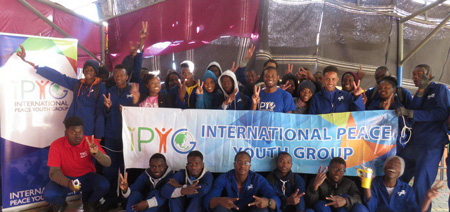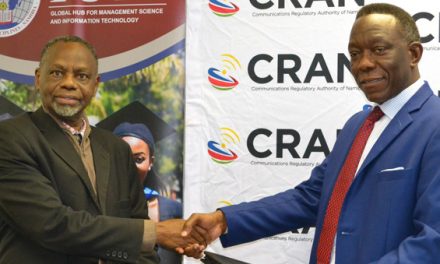
President responds to the call from the youth

By Linda Machinga
The country’s youth expressed their gratitude to H.E President Dr Hage Geingob as the first southern African President to respond to the cries of the youth for peace, through peace letters that were submitted to his office.
Geingob’s decision to embark on a journey sets a benchmark for the rest of the African continent, and the entire world, to foster and facilitate a culture of peace. This assures the local youth that the outcome of the Southern African Development Community (SADC) Summit will be favourable and inclusive of the youth.
The peace letters call for a culture of peace through the Declaration of Peace and Cessation of War (DPCW). The DPCW is a legal instrument made up of 10 articles and 38 clauses, drafted by 21 legal experts. It embodies existing laws founded in the Charter of the United Nations, as well as the Declaration of Human Rights, and contains three unique articles that call for religious harmony and a culture of peace. It uniquely includes provisions designed to prevent and put a stop to all conflicts and wars.
The peace letters were drafted and sent to Geingob’s office by the local youth under the umbrella of the International Peace Youth Group (IPYG) to draw attention to the threatened state of peace and security in the country.
The peace letters were the voices of the youth of the Namibia Youth Development Organisation (NYDO), Katutura Youth Enterprise (KAYEC), Red Cross Namibia, University of Namibia and Southern African Alliance for Youth Employment, among others. Some of the highlighted issues included gender-based violence, rape, kidnappings and murder. The youth cried for a united effort and a link to the government of Namibia to help eliminate these social, life-threatening ills from their environment.
Considering the current challenges of gender-based violence and unemployment that Namibia and Southern Africa are facing, the DPCW provides a clear solution for these problems. Through implementing a culture of peace through peace value education, youth are overcoming their challenges and changing their mindsets to become a generation of active citizens who take initiative as peace ambassadors to promote and develop their own families, environments and countries.
In his response to the peace letters, Geingob commended the IPYG for its effort in running to achieve a culture of peace in Namibia stating that he was willing to work with them. The youth of Namibia are looking forward to the SADC summit, with the theme ‘Promoting Infrastructure Development and Youth Empowerment for Sustainable Development’.
The South African branch of the organisation has also submitted peace letters to the South African President, H. E The President Cyril Ramaphosa and are currently campaigning to create awareness among all presidents of southern Africa.
The Chairman of the youth organisation will be travelling to Namibia to engage in various meetings on the sidelines of the SADC Summit that will involve heads of states and distinguished youth leaders from Southern Africa.
According to the words of the Chairman of the organisation, “Of what use is a young life, born in our day and age, if it is thrown away in this manner – thrown away without having had a chance to bloom? What price can compensate for the loss of a life? Do these young souls have another chance at life?”













































